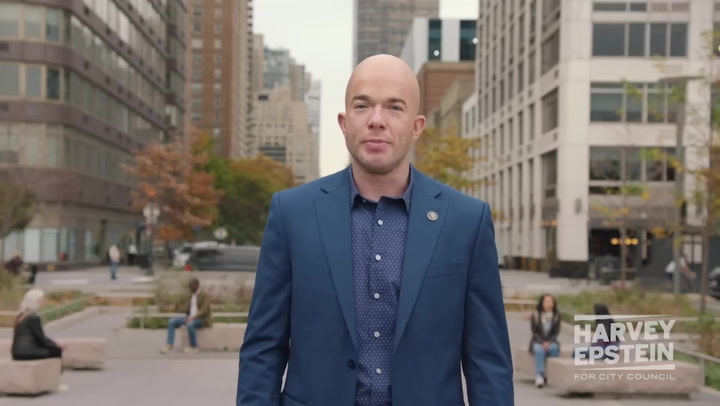Forrest Gump is a cinematic masterpiece that has captured the hearts of audiences since its release in 1994. With its unique blend of humor, drama, and romance, the film tells the poignant story of Forrest, played by Tom Hanks, and his complicated relationship with Jenny, portrayed by Robin Wright. The film explores themes of love, destiny, and the passage of time, making it a timeless piece of art. In this article, we will delve deeper into the characters of Forrest and Jenny, their journeys, and the impact the film has had on culture and cinema.
Tom Hanks' portrayal of Forrest Gump is iconic, with his genuine innocence and unwavering love for Jenny resonating deeply with viewers. Hanks' ability to embody this character with such warmth and sincerity has made Forrest Gump a beloved figure in film history. From the famous running scenes to his simple yet profound wisdom, Hanks' character becomes a symbol of hope and determination.
Robin Wright's Jenny represents a complex and, at times, controversial character. Throughout the film, Jenny struggles with her own demons, and her relationship with Forrest reflects society's expectations of love and sacrifice. Wright's performance is both heartbreaking and powerful, showcasing the nuances of her character's choices and their impact on Forrest's life. Together, they create a dynamic that has sparked discussions and debates for decades.
The film itself, directed by Robert Zemeckis, won six Academy Awards, including Best Picture and Best Actor for Hanks. Its success can be attributed not only to the performances of its leads but also to the innovative storytelling techniques and groundbreaking visual effects that brought the story to life. The film's ability to intertwine historical events with personal narratives is one of its most significant achievements.
As we look back on Forrest Gump's journey, it is essential to recognize how its themes remain relevant today. The film addresses issues of love, loss, and the human experience, making it a universally relatable tale. Wright's recent comments about her character shed light on evolving perceptions of femininity and the complexities women face. Jenny's character has been discussed extensively, and Wright's reflection on her role challenges preconceived notions surrounding her actions and choices.
In a recent interview, Wright emphasized that Jenny's behavior should not be viewed as merely anti-feminist. Instead, it highlights the struggles of a young woman navigating a tumultuous life. She stated, 'No! It’s not about that. People have said she’s a Voldemort to Forrest. I wouldn’t choose that as a reference, but she was kind of selfish.' This perspective opens a dialogue about the film's depiction of women in the 1990s and how it may differ from today’s narratives.
Wright’s comments also reveal the depth of Jenny's character, portraying her as multi-dimensional rather than reductive. She acknowledges Jenny's flaws, such as her promiscuity and self-destructive choices, yet emphasizes her humanity and the love she has for Forrest. This complexity is what continues to engage audiences, allowing them to connect with the characters on a personal level.
As we celebrate the legacy of Forrest Gump, it is vital to recognize the film's place in cinema history. The dialogues, quotes, and memorable scenes have become ingrained in popular culture, influencing generations of filmmakers and fans alike. Phrases like 'Run, Forrest, run!' and 'Life is like a box of chocolates' have transcended the film, becoming part of everyday language.
The reunion of Wright and Hanks in the recent film 'Here' serves as a poignant reminder of their enduring connection as actors and friends. As they move forward in their careers, fans are reminded of the impact they had through Forrest Gump, advocating for the importance of storytelling in cinema. This reunion not only highlights their talent but also reflects a shared history that continues to resonate.
In conclusion, Forrest Gump remains a landmark film that explores the beauty and complexities of love, loss, and human connections. The characters of Forrest and Jenny embody deep emotions that continue to inspire discussions about gender roles, relationships, and societal expectations. As we reflect on this cinematic journey, we celebrate the creativity of its storytellers and the undeniable influence it has had on film as a medium. The lessons learned from Forrest Gump are timeless, and the performances by Hanks and Wright will forever hold a special place in the hearts of audiences around the world.
Forrest Gump, released in 1994, is a film that continues to resonate with audiences today, largely due to the powerful performances of its lead actors, Tom Hanks and Robin Wright. The movie, which spans several decades, chronicles the life of Forrest, a man with a low IQ but a heart full of love and kindness, as he navigates through monumental events in American history. Hanks, playing the titular character, captures the essence of innocence and unwavering love, while Wright’s portrayal of Jenny is layered with complexity, embodying the struggles of love and tragedy.
One of the most striking aspects of the film is the relationship between Forrest and Jenny. Throughout their tumultuous journey, Jenny, played by Robin Wright, symbolizes a character who is continually escaping her past while wrestling with her feelings for Forrest. Their love story offers an intriguing exploration of the concept of unconditional love against the backdrop of personal struggles and societal challenges. Wright's performance redefines the notion of a romantic lead, providing depth and nuance to a character that has been both criticized and celebrated.
As Hanks and Wright reunite to reflect on their iconic roles several decades later, it’s clear that the themes presented in Forrest Gump are not constrained by time. They resonate with contemporary audiences who are still grappling with similar questions about love, acceptance, and the impact of one’s choices on their lives. The dialogue surrounding the film's portrayal of their characters is just as vital now as it was upon its release.
Throughout the film, viewers are treated to a narrative that feels both epic and intimate. Hanks’ Forrest Gump provides a unique lens through which the audience can experience pivotal historical moments, from the Vietnam War to the rise of the internet. His simplicity starkly contrasts with the complex realities of the world, creating a powerful commentary on human nature. In this way, the film's storytelling methods serve to highlight not only the remarkable actor's skills but also the import of the characters they portray.
Robin Wright's performance in Forrest Gump sparked discussions around femininity in film. Many critics have argued that her character, Jenny, showcases an anti-feminist portrayal due to her choices and perceived selfishness. However, as Wright herself noted, she did not see her character as villainous or as a punishment to Forrest. Instead, she emphasized Jenny's complexities, her struggles with addiction, relationships, and her ultimate search for peace and acceptance.
This perception of Jenny has evolved over the years, with modern audiences often approaching her character through the lens of empathy. Wright's portrayal might be viewed in a different light, recognizing that Jenny’s choices reflect a broader commentary on societal expectations and personal freedom during the tumultuous 1970s and 1980s. This nuanced performance invites ongoing discussion about gender roles and the evolution of female characters in cinema.
The conclusion of Forrest Gump remains one of the most memorable moments in movie history, leaving audiences in contemplation long after the credits roll. As Forrest bids farewell to Jenny and takes their son to school, the heartwarming scene showcases a type of love that persists beyond life's challenges. It remains a poignant testament to Hanks and Wright's chemistry on screen and their ability to craft an emotional narrative that touches the heart.
Even decades after its release, Forrest Gump continues to inspire discussions surrounding love, identity, and redemption. As we look back on the iconic characters and their journeys, it’s essential to acknowledge the enduring impact of the film in shaping narratives around masculinity and femininity. The balance between their contrasting personality traits and life choices creates a rich tapestry that viewers can relate to, irrespective of the era.
The collaboration between Tom Hanks and Robin Wright is not limited to Forrest Gump. Their recent reunion in the film Here speaks volumes about the chemistry they developed over the years while making this iconic classic. Both actors have expressed their fondness for the experience they shared on set and the memories that have lingered long after the film's release. There is an authenticity in their interactions that transcends the screen, making their performances feel genuine and heartfelt.
As performers who have experienced the evolution of cinema firsthand, Hanks and Wright possess a deep understanding of how roles and narratives must adapt with changing times. Their reflections on Forrest Gump reveal not only their growth as actors but also the film's capacity to remain relevant in today's social landscape. This ongoing connection ensures that the story of Forrest and Jenny continues to be celebrated and critiqued for generations to come.




.webp)

